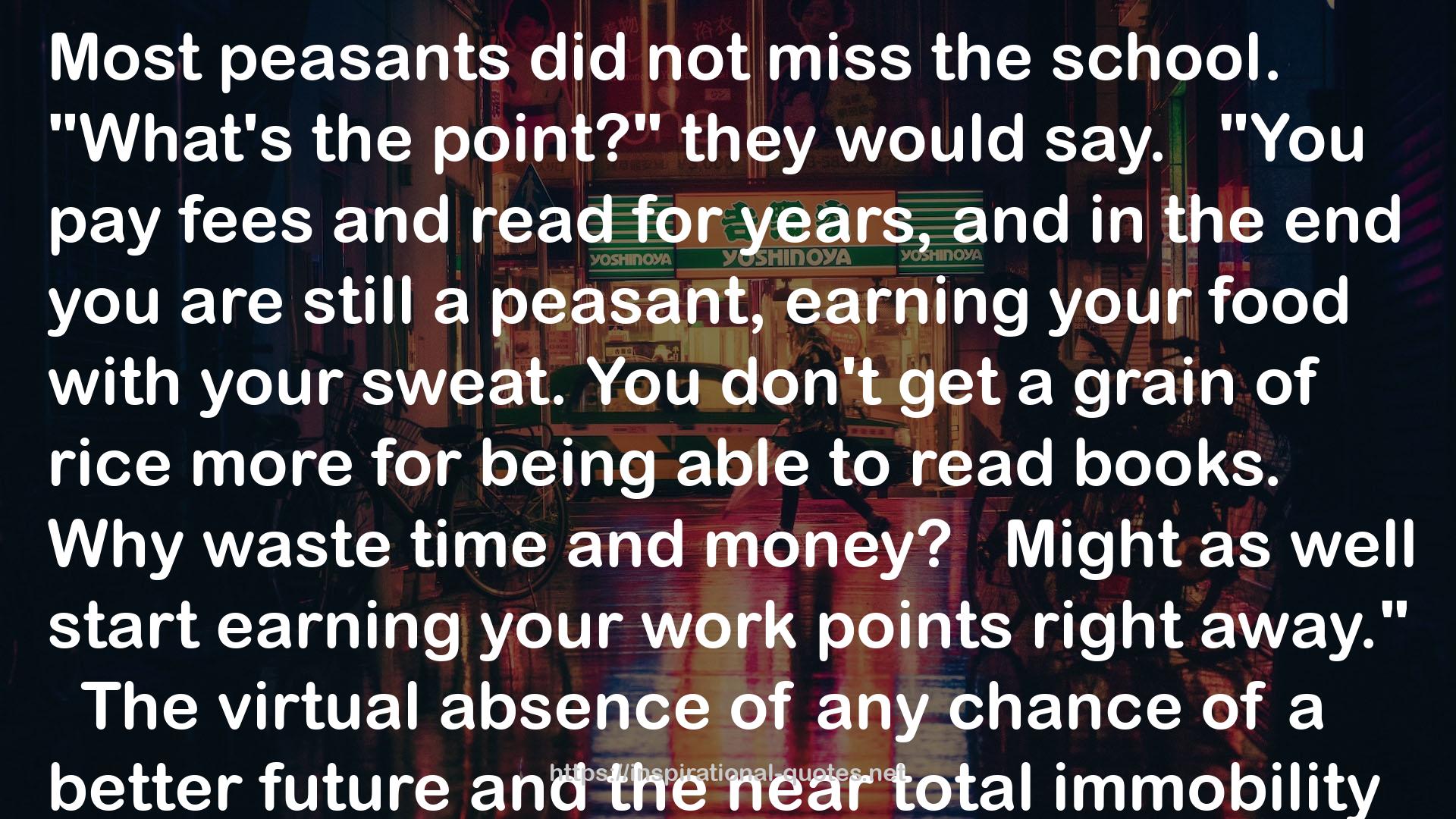" Most peasants did not miss the school.
"What's the point?" they would say.
"You pay fees and read for years, and in the end you are still a peasant, earning your food with your sweat. You don't get a grain of rice more for being able to read books. Why waste time and money?
Might as well start earning your work points right away."
The virtual absence of any chance of a better future and the near total immobility for anyone born a peasant took the incentive out of the pursuit of knowledge. Children of school age would stay at home to help their families with their work or look after younger brothers and sisters. They would be out in the fields when they were barely in their teens. As for girls, the peasants considered it a complete waste of time for them to go to school.
"They get married and belong to other people. It's like pouring water on the ground."
The Cultural Revolution was trumpeted as having brought education to the peasants through 'evening classes." One day my production team announced it was starting evening classes and asked Nana and me to be the teachers. I was delighted. However, as soon as the first 'class' began, I realized that this was no education.
The classes invariably started with Nana and me being asked by the production team leader to read out articles by Mao or other items from the People's Daily. Then he would make an hour-long speech consisting of all the latest political jargon strung together in undigested and largely unintelligible hunks. Now and then he would give special orders, all solemnly delivered in the name of Mao. "
Image for Quotes

"You pay fees and read for years, and in the end you are still a peasant, earning your food with your sweat. You don't get a grain of rice more for being able to read books. Why waste time and money?
Might as well start earning your work points right away."
The virtual absence of any chance of a better future and the near total immobility for anyone born a peasant took the incentive out of the pursuit of knowledge. Children of school age would stay at home to help their families with their work or look after younger brothers and sisters. They would be out in the fields when they were barely in their teens. As for girls, the peasants considered it a complete waste of time for them to go to school.
"They get married and belong to other people. It's like pouring water on the ground."
The Cultural Revolution was trumpeted as having brought education to the peasants through 'evening classes." One day my production team announced it was starting evening classes and asked Nana and me to be the teachers. I was delighted. However, as soon as the first 'class' began, I realized that this was no education.
The classes invariably started with Nana and me being asked by the production team leader to read out articles by Mao or other items from the People's Daily. Then he would make an hour-long speech consisting of all the latest political jargon strung together in undigested and largely unintelligible hunks. Now and then he would give special orders, all solemnly delivered in the name of Mao." style="width:100%;margin:20px 0;"/>